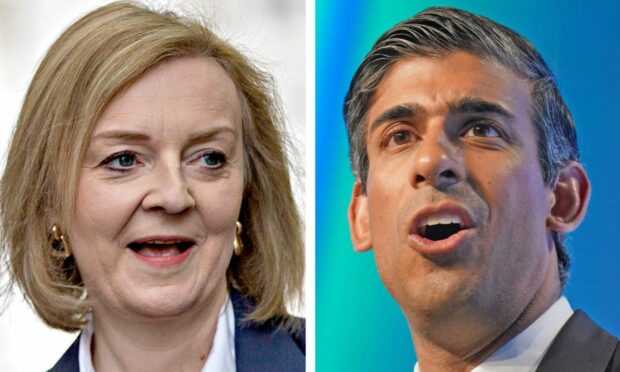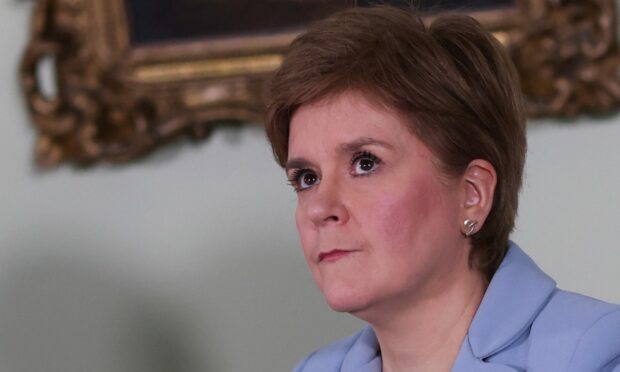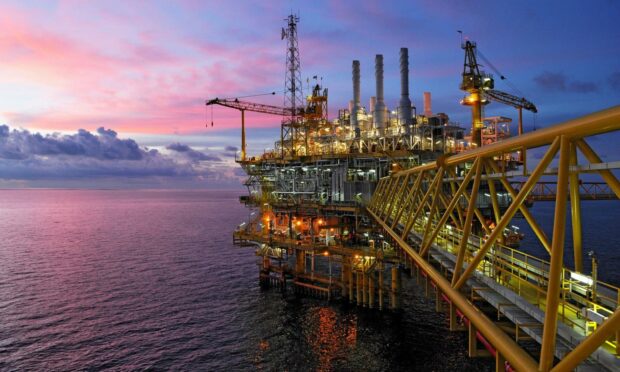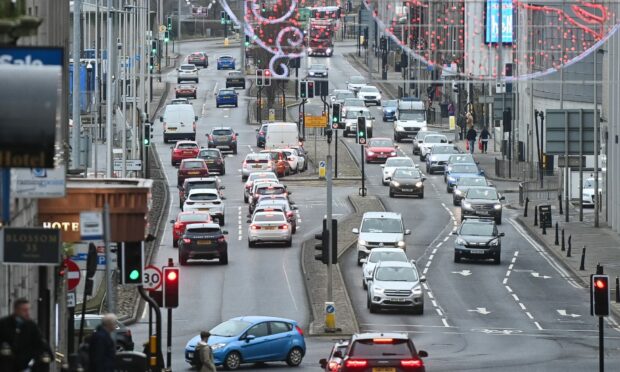Either Liz Truss or Rishi Sunak will be named as our new prime minister today – but do you know what they plan to do in power?
Their policies will affect everyone in the UK even though this contest is entirely decided by a tiny fraction of signed-up Conservative members.
This is what you can expect from whoever is handed the keys to 10 Downing Street.
1. Deadlock on independence referendum
The two contenders strongly oppose a second independence referendum.
Ms Truss labelled herself as a “child of the union” due to her short childhood spell at a Paisley primary school.
And she didn’t mind kicking up a storm by branding Nicola Sturgeon an “attention-seeker” who should be “ignored”.
Ms Truss said she would refuse to let the union be broken up during her spell in charge.
Mr Sunak was seen by some observers during a Perth leaders debate as more cautious about ruling out a vote. But he was clear in saying a referendum was “unnecessary and divisive”.
Whoever takes power next month will continue the legal fight with the Scottish Government to block a ballot in October 2023.
2. The cost of living crisis
It’s one of the most serious charges against Boris Johnson that he has washed his hands of a “zombie” government doing very little to act as the cost of living spirals out of control.
Ms Truss and Mr Sunak are expected to promise more help for households before heating costs shoot up in winter.
Our charts revealed households in the north and north-east will be left paying more than £2,000 extra a year to cover gas and electricity.
Some northern council areas desperately in need of support have been overcharged when it comes to energy costs for years.
Rural local authorities such as Shetland and Orkney face the highest bill prices in the whole of the UK.
Ms Truss vowed to help families and businesses cope with sweeping tax cuts of more than £30 billion by undoing the rise in national insurance and stopping corporation tax increases.
Mr Sunak claims her economic proposals would leave families in “destitution” if more direct support is not offered.
He has warned Britain may have to borrow up to £50 billion to fund them.
The ex-chancellor won’t reverse his increases to corporation tax and national insurance.
Neither leadership contender has pledged to completely suspend future price rises, a measure backed by both Labour leader Keir Starmer and Ms Sturgeon.
3. Focus on our energy mix
The new prime minister is on course to clash with Holyrood over Scotland’s energy mix.
Ms Truss wants to ramp up domestic oil and gas production.
According to a new economic report, Scotland has gained £3.5 billion in revenue from the North Sea in the past 12 months.
The oil and gas industry remains vital to Aberdeen’s economy, and will become more of a lightning rod for political debate.
However, Ms Sturgeon remains determined to phase out reliance on fossil fuels and wants to focus on renewable energy.
The Tory leadership hopefuls also back nuclear power and aim to build new plants in England.
But the SNP leader opposes this and is unlikely to budge.
Only one plant – Torness, in East Lothian – remains functional and it is to be decommissioned later this decade.
As part of her tax cut plans, Ms Truss has promised to suspend the green energy levy.
It’s estimated this would save households up to £150 on their bills.
While he was chancellor, Mr Sunak imposed a windfall tax on oil and gas firms to help ease the cost of living crisis.
He intends to keep this in place if he becomes prime minister.
4. Will the north ‘level up’?
Outgoing prime minister Mr Johnson’s levelling-up programme will remain in place under his successor. It’s a scheme designed to spread money to cities and towns directly from Westminster.
Aberdeen’s council bosses submitted a £20 million bid to rejuvenate the beach area in the second round of funding.
Highland Council wants £44 million to carry out road improvements.
In a column for The Times, Aberdeenshire Tory MP Andrew Bowie said Mr Sunak will be willing to “circumvent” Holyrood to implement policies.
Both candidates are likely to push that attitude in an attempt to sideline the SNP.
5. Double down on Brexit
Ms Truss and Mr Sunak plan to continue scrapping EU laws in the aftermath of Brexit – just as polls show Scots overwhelmingly wish we’d never left at all.
That’s despite warnings sectors including the Scottish salmon industry are facing worker shortages.
The Scottish Fishermen’s Federation were enthusiastic backers of quitting the EU – but that hasn’t stopped them from being vocally disappointed at progress.
A deeply controversial scheme to send asylum seekers to Rwanda is set to remain in place.
Ms Truss wants to extend the policy to other countries.
6. Defence, and the ultimate deterrent
Mr Sunak said a policy to spend 2% of GDP on defence was a “floor”, not a ceiling.
Ms Truss suggested increasing defence spending to 3%, attracting support from figures including defence secretary Ben Wallace – a former north-east MSP.
Ms Struss, who is still the foreign secretary, also appeared willing to sound aggressive on the use of nuclear weapons.
Asked in a leaders’ debate, she said she’d be willing to push the nuclear button even if it meant “global annihilation”.
The next prime minister will be announced today, then formally appointed by the Queen on Tuesday, September 6.



